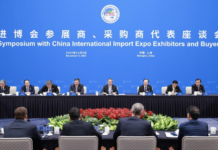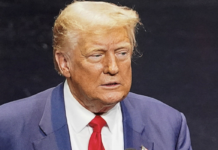Beijing, Feb 5:The trade war initiated by former U.S. President Donald Trump’s administration with the country’s major trade partners, including China, has brought “significant” damage to the U.S. economy, a renowned scholar said Thursday.
“His (Trump’s) trade policies were a failure in the sense that they were geared towards reducing the bilateral deficit,” Sourabh Gupta, a senior fellow at the Washington-based Institute for China-America Studies, told Xinhua in an interview.
“And frankly, that deficit may have got reduced a little bit in the previous years, not last year when the deficit actually increased,” he said.
In the first 11 months of 2020, the trade deficit rose by 13.9 percent year on year, according to the U.S. Department of Commerce.
“It makes no sense to be increasing tariffs, because at the end of the day, tariffs are paid by your own consumers. And this has been amply clear,” said Gupta.
“So America hasn’t benefited at all. And to the contrary, by telling workers that they can get easy protection by raising tariffs is no protection at all because it doesn’t help them in the longer run, doesn’t help them change and become more competitive,” he said.
As for the investment restrictions and export controls imposed by the Trump administration, Gupta said “the jury is still out.”
“They could really create lasting damage in U.S.-China trade and investment relations. And so we need to see where this goes and hopefully many of them will be revised by the new administration,” he said.
The expert noted there is “a danger here for the Americans” because China and other countries are “going ahead and deepening their economic structures.”
“U.S. products will no longer have a market in China while European products will,” he said.
Besides, “there’s a potential for lasting damage in terms of investment relations, which will hurt America,” he added.
“There’s already immediate damage, which has been caused to many workers, ranchers (and) farmers who sell goods in China, or to American consumers who benefit from goods produced in China,” Gupta said.
















